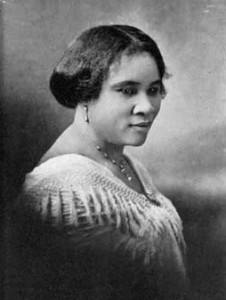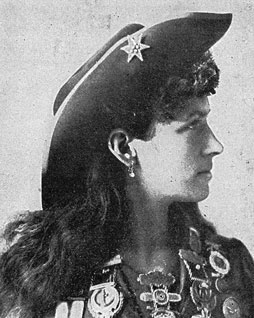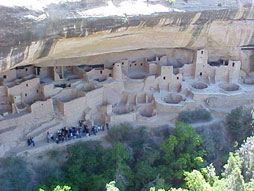By Sharon Murra-Kapon/south news editor
Despite the segregation and restrictions to blacks during the late 1800s, a woman’s seed of tenacity, determination and boldness flourished beyond her generation.

Sarah Breedlove, later known as Madame C. J. Walker, was born on Dec. 23, 1867, on a Delta, La. plantation.
“ This daughter of former slaves transformed herself from an uneducated farm laborer and laundress into one of the 20 century’s most successful, self-made women entrepreneurs,” according to www.madamecjwalker.com, the official Web site in her honor.
A battle for survival
Her parents, Owen and Minerva Breedlove, died when she was a child. After living in different households for a short time, she moved with her married sister where later, according to the Web site, she was abused by her brother-in-law. She ran away at age 14 and married Moses McWilliams. In 1885, she gave birth to their daughter Leila, but two years later, a white lynch mob murdered her husband.
Breedlove moved with her daughter to St. Louis, where her four brothers were barbers. She worked as a house cleaner, making as little as $1.50 a day. The effects of stress and worry soon appeared when she started losing her hair. After trying many home remedies, she came across the beauty products of a black woman entrepreneur, Ann Malone.
The birth of Madam C.J. Walker
Breedlove moved to Denver as a sales representative for Malone, and later married Charles J. Walker, a newspaperman from St. Louis. After changing her name to Madame C.J. Walker, she developed a formula for hair growth she said was revealed to her in a dream. She then founded a business offering a line of cosmetics and hair-care products especially for black women.
An online portfolio from the New York Public Library reports Walker began selling her wares door-to-door. By the early 1900s, she established a company based in Indianapolis, Ind., employing thousands of blacks. They manufactured and sold her products all over the United States, Central America and the Caribbean.
A few months later, she grabbed national headlines in the black press when she contributed $1,000 to the building fund of the “colored” YMCA in Indianapolis. The Walker Theatre in the city today was planned by Walker but built after her death. It was designed to serve not only as the headquarters for her business, but also as a social and cultural center for blacks in Indianapolis. In addition, it houses different commercial businesses.
After her business became successful, she built a huge house near the Hudson River in New York and opened an elegant, fully equipped beauty salon next door. She also bought property on Broadway at Irvington-on-Hudson and built a mansion called Villa Lewaro, where she lived the rest of her days. She continued to oversee the businesses in Indianapolis and New York.
Local Philanthropist
Walker was also an activist for human rights. In 1917, after a white mob killed a group of black men in East St. Louis, Ill., Walker joined a group of Harlem leaders who visited the White House to present a petition favoring federal anti-lynching legislation.
Walker was a speaker at several National Association for the Advancement of Colored People conventions, and took special interest in their anti-lynching movement. She contributed the largest amount ever given to the NAACP by a single person.
“ I am a woman who came from the cotton fields of the South. From there I was promoted to the washtub. From there I was promoted to the cook kitchen. And from there I promoted myself into the business of manufacturing hair goods and preparations … I have built my own factory on my own ground,” Walker said at a National Negro Business Conference in 1917.
“ … I want to say to every Negro woman present, don’t sit down and wait for the opportunities to come. Get up and make them!”
Walker died in 1919 at age 51 from complications related to hypertension. On Jan. 28, 1998, the United States Postal Service issued the Madam C.J. Walker Commemorative stamp as a part of its Black Heritage Series.
She was considered the wealthiest black woman in America and the most influential in creating the self-made 20th century American woman. She was a pioneer in the modern black hair-care and cosmetics industry and set standards in the black community. She fought for her people’s rights and invested in the emerging of black art and music.






























